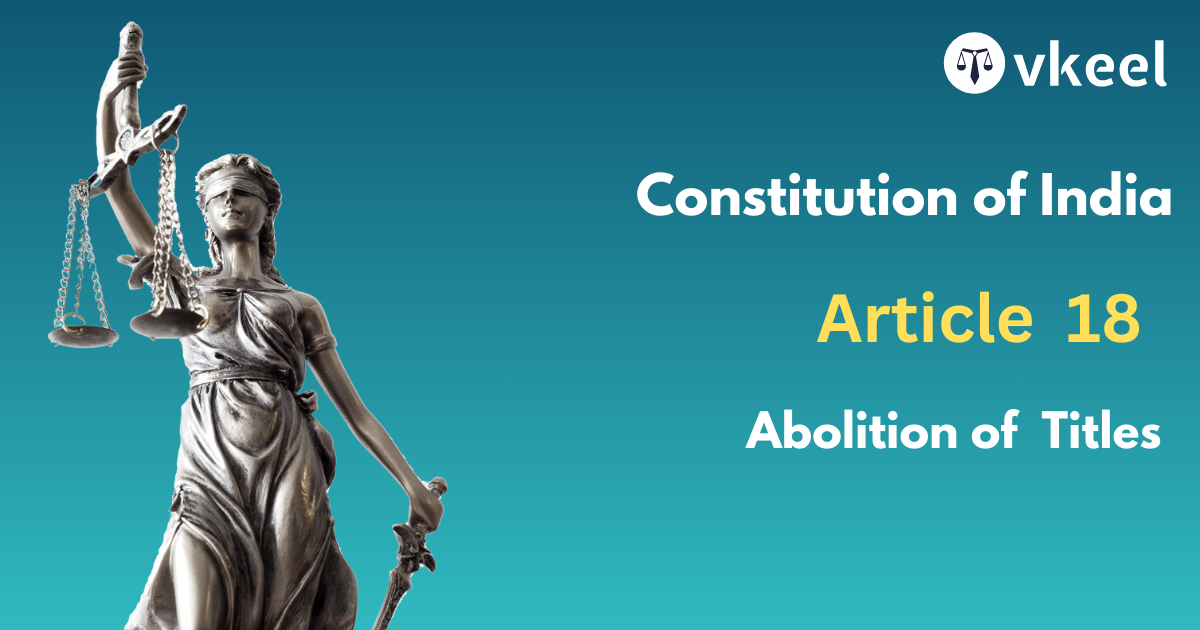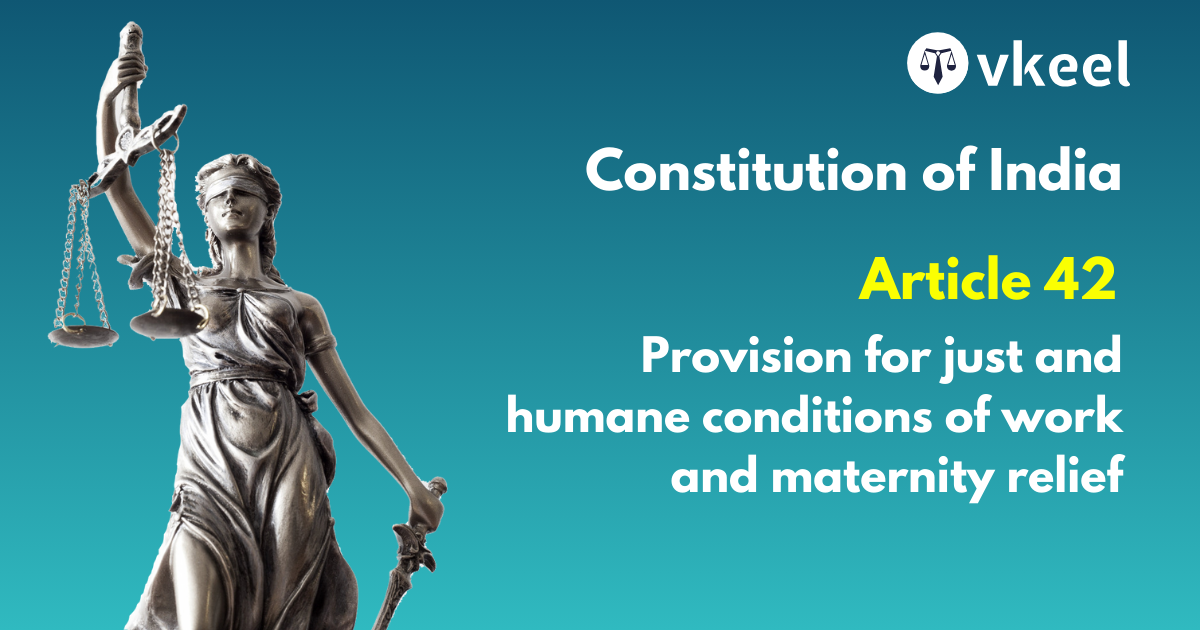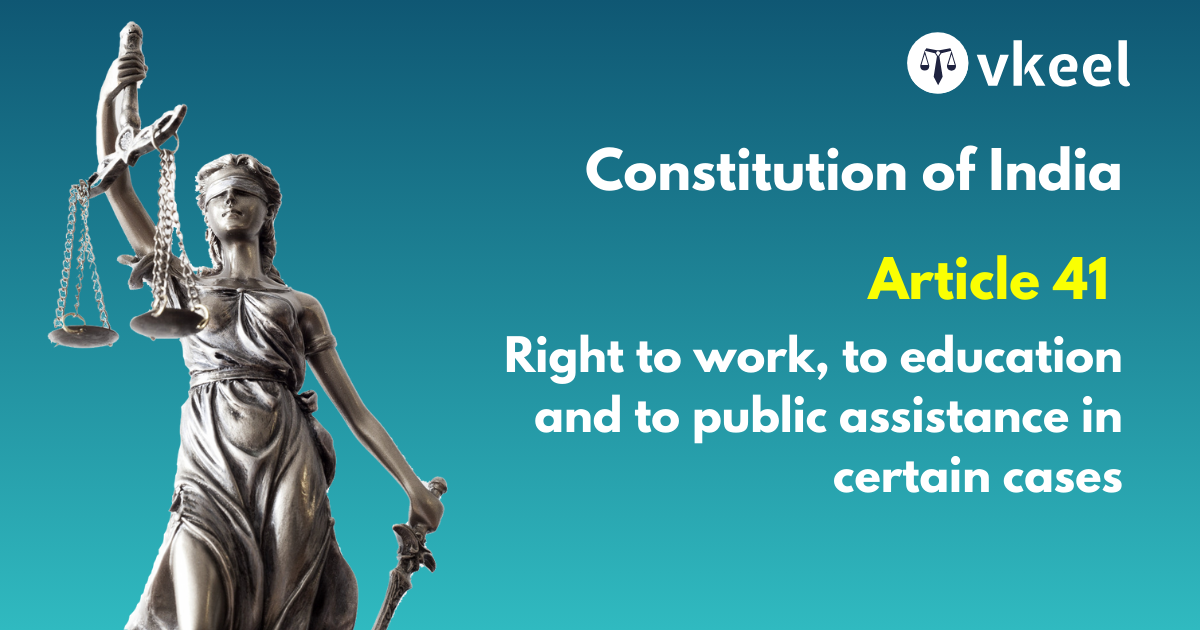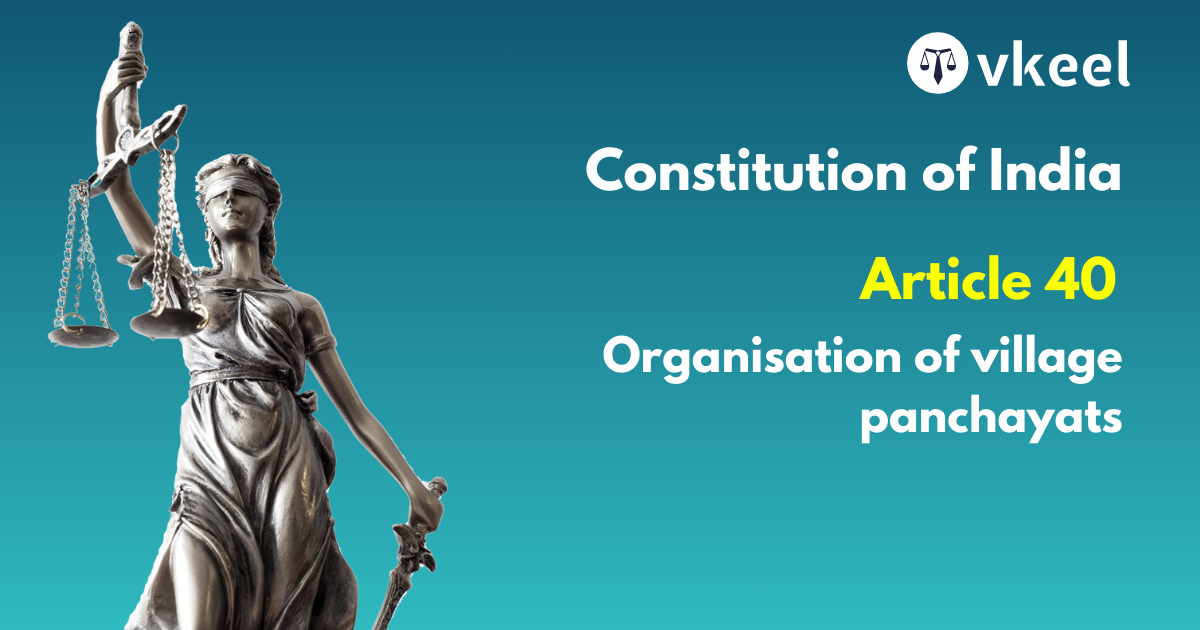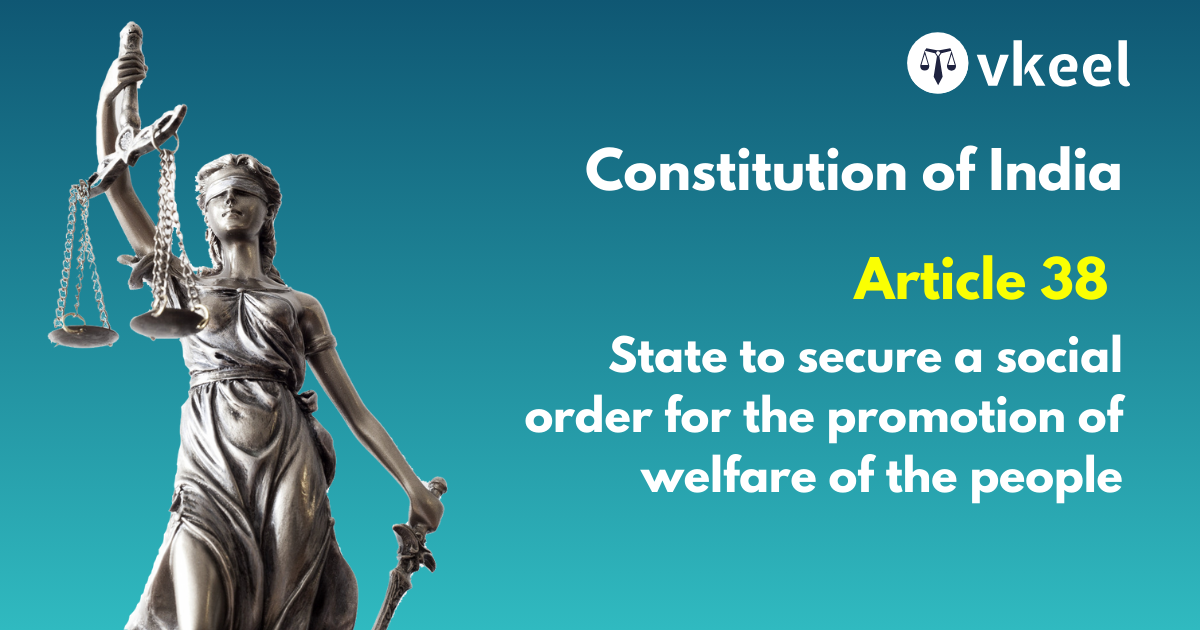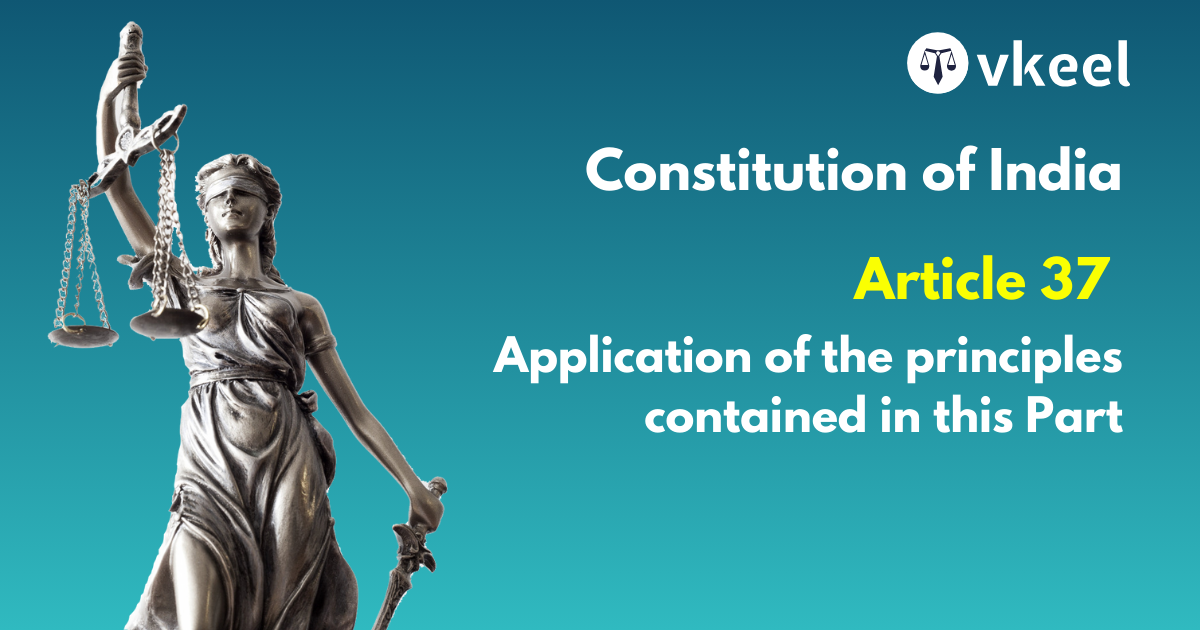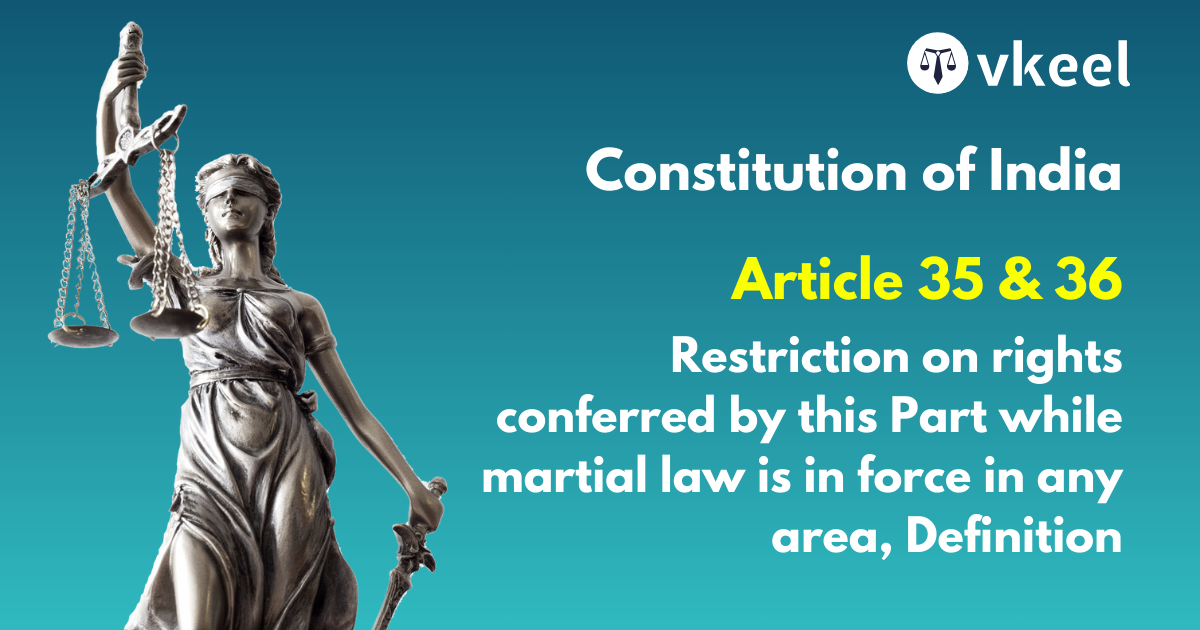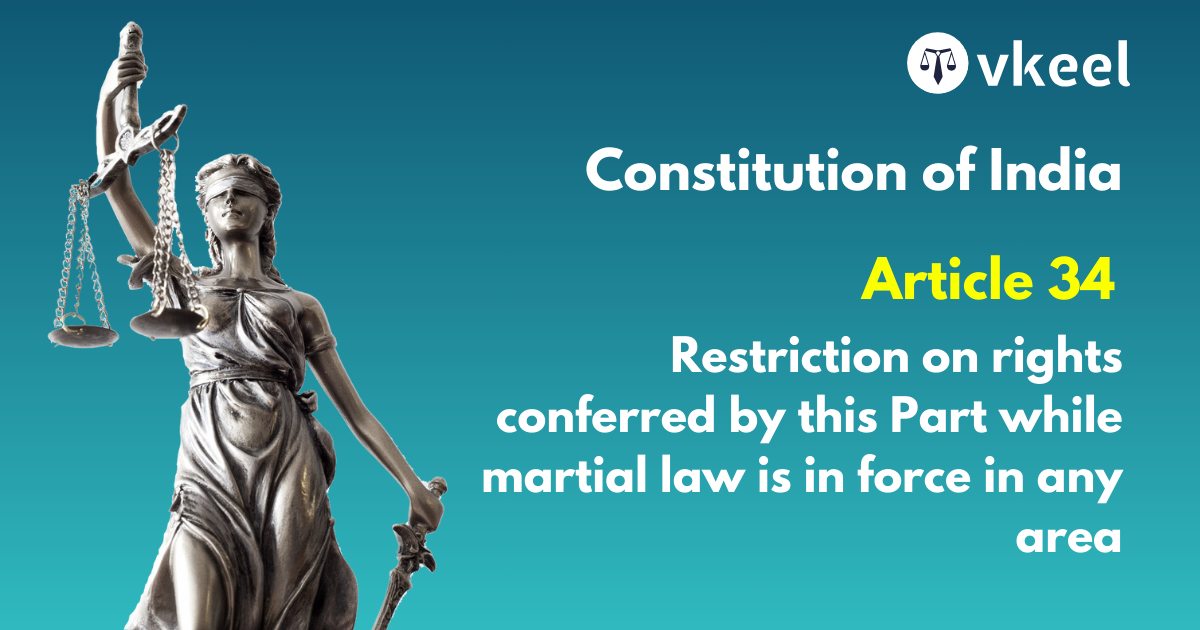Article 18: Abolition of Titles
By Vanshika Saini
Table of Contents
Introduction
The sole subject of the Article 18 is to prohibit the state from confering titles to anybody, applicable to both a foreign and Indian citizen. An exception would be entertained in case of academic and military distinctions. The Article 18 came into force after the amendments of T.T. Krishnamachari was accepted by Dr. Ambedkar of the Constituent Assembly.
Under the clauses of Article 18 an Indian individual is prohibited from accepting any titles from the foreign states. Under clause 3 any foreign national working or holding office of profit under the Indian state cannot accept any titles without the prior permission of the President. Lastly, no citizen can accept any present office or employment from any foreign state without the permission of the President.
Article 18: Abolition of Titles
No title, not being a military or academic distinction, shall be conferred by the State.
No citizen of India shall accept any title from any foreign State.
No person who is not a citizen of India shall, while he holds any office of profit or trust under the State, accept without the consent of the President any title from any foreign State.
No person holding any office of profit or trust under the State shall, without the consent of the President, accept any present, emolument, or office of any kind from or under any foreign State.
Judicial Pronouncements
In Balaji Raghavan vs Union of India, in context of abolition of titles, it was judicially interpreted, ” Marginal heading of article 18, which reads as “Abolition of Titles” is an incorrect summarisation of its contents as it does not seek to abolish titles granted in the past. It is clear that in enacting article 18(1), the framers of the Constitution sought to put an end to the practice followed by the British in respect of conferment of titles. They, therefore, prohibited titles of nobility and all other titles that carry suffixes or prefixes as they result in the creation of a distinct unequal class of citizens. However, the framers did not intend that the State should not officially recognise merit or work of an extraordinary nature. They, however, mandated that the the honours conferred by the State should not be used as titles, by the recipients.”
“Bharat Ratna, Padma Vibhushan, Padma Bhushan and Padma Shri are not violative of the principles of equality as guaranteed by the provisions of the Constitution. The theory of equality does not mandate that merit should not be recognized. In this context, reference may be made to various clauses of article 51A and specifically clause (j) which exhorts every citizen “to strive towards excellence in all spheres of individual and collective activity, so that the nation constantly rises to higher levels of endeavour and achievement”. It is, therefore, necessary that there should be a system of awards and decorations to recognise excellence in the performance of these duties. These National Awards do not amount to ‘titles’ within the meaning of article 18(1) and they should not be used as suffixes or prefixes. If this is done, the defaulter should forfeit the National Award conferred on him or her by following the procedure laid down in Regulation 10 of each of the four notifications creating these National Awards.”
“Hereditary titles of nobility conflict with the principle of equality insofar as they create a separate, identifiable class of people who are distinct from the rest of the society and have access to special privileges. Titles that are not hereditary but carry suffixes or prefixes have the same effect, though the degree may be lesser. While other Constitutions also prohibit the conferment of titles of nobility, ours may perhaps be unique in requiring that awards conferred by the State are not to be used as suffixes or prefixes. This difference is borne out of the peculiar problems that these titles had created in pre-independent India and the earnest desire of the framers to prevent the repetition of these circumstances in free, independent India. However, it is axiomatic that the misuse of a concept does not change its inherent nature.”
“The guidelines contained in the communique from the Ministry of Home Affairs towards the selection of probable recipients are extremely wide, imprecise, amenable to abuse and wholly unsatisfactory for the important objective that they seek to achieve. There are no limitations prescribed for the maximum number of awards that can be granted in a given year or the maximum number that is permissible in each category. The Prime Minister’s Committee on Awards and Honours, 1948 had recommended certain limitations in terms of numbers but these have not been incorporated in the extent guidelines. Most countries have provided for such limitations in respect of their civil awards. That is for the obvious reason that the importance of the awards is not diluted. While in the grant of the Bharat Ratna award sufficient restraint has been shown, the same cannot be said of all other awards. The exercise of such restraint is absolutely necessary to safeguard the importance of the awards. That is why the need for necessarily granting awards every year also requires reconsideration. These and the fixing of other criteria, which will ensure that the recipients of these awards are subjected to feelings of respect rather than suspicion, need to be examined by a high-level Committee that may be appointed by the Prime Minister in consultation with the President of India. Even otherwise it is time that such a Committee looks into the working of the existing guidelines in view of the experience gained.”
Conclusion
The account of Article 18 aims to end social inequality in India, the hypothesis led to the understanding that regulation of India and articles do not allow any individual to use suffix or prefix. This approach caters to provide a stage of fairness, accountability, transparency and inclusivity.
Disclaimer:
The information provided in the article is for general informational purposes only, and is not intended to constitute legal advice or to be relied upon as a substitute for legal advice. Furthermore, any information contained in the article is not guaranteed to be current, complete or accurate. If you require legal advice or representation, you should contact an attorney or law firm directly. We are not responsible for any damages resulting from any reliance on the content of this website.

